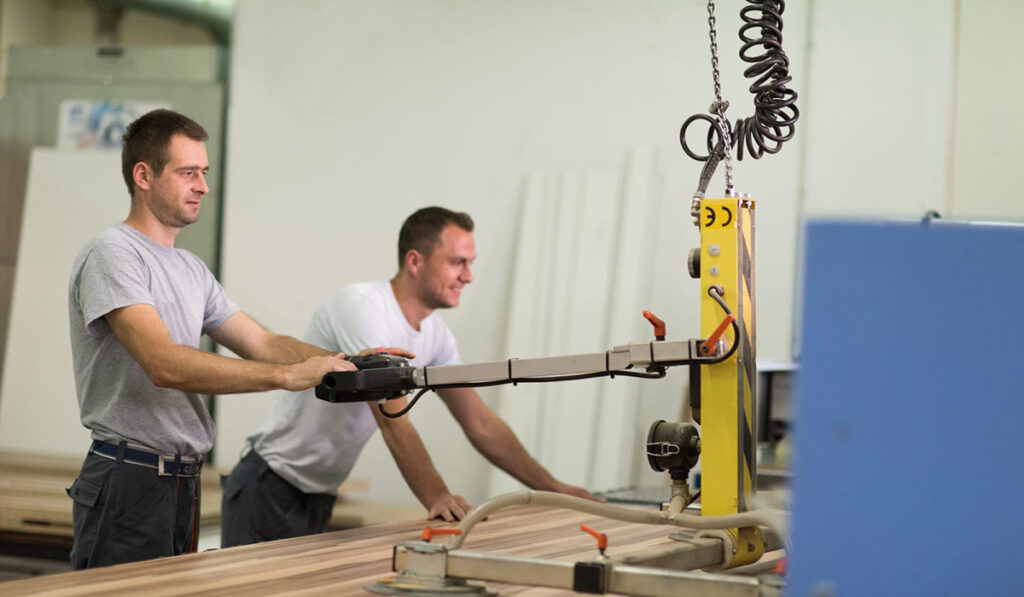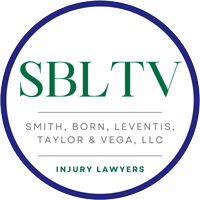
South Carolina Workers’ Compensation for Forklift Accidents
Understand your rights after a forklift accident at work
Forklifts and forklift operators are the mainstays in warehouses, factories, home improvement stores and construction sites throughout South Carolina. Forklifts are also among the most hazardous equipment in the workplace, leading to thousands of injuries every year.
Fortunately, most South Carolina workers who suffer an injury while using a forklift are entitled to workers’ compensation benefits to help with medical expenses and lost wages during their recovery.
Forklift injury statistics
If there’s any question as to the inherent danger of forklifts, just look at these statistics.
A total of 70 workers lost their lives because of accidents with forklifts in 2021 alone.
In 2020, almost 7,300 workers sustained nonfatal injuries that required days off work because of forklift accidents.
Additionally, forklift injuries are typically more severe than other workplace injuries. According to data, in 2020, the median number of days off work for all injuries was 12, while the median number of days off work for forklift-related injuries was 17.
Why are forklifts so dangerous?
Forklifts weigh 3 times more than most cars. They travel up to 18 mph, usually within enclosed warehouses or storage facilities around pedestrian workers. Some other features that make forklifts inherently dangerous include the following:
- Forklifts have brakes only in the front, making them harder to stop.
- Weight is unevenly distributed to the rear to compensate for heavy loads in the front.
- The risk of tipping over is increased because turns are made by the rear wheels.
- The forklift driver’s vision is obstructed by loads carried in the front.
- Heavy loads are lifted to considerable heights above the driver and nearby pedestrians.
Top causes of forklift-related injuries in the workplace
Some common causes of forklift accidents include the following:
- Traveling at excessive speed
- Riding with the load elevated
- Improper backing-up techniques
- Improper turning, braking or accelerating
- Inadequate warnings to pedestrians about a forklift in use nearby
- Insufficient awareness of conditions of the forklift route and space
- Riding or giving rides on the forklift or load
- Parking the forklift improperly
- Horseplay and erratic driving
- Poor servicing of the forklift
South Carolina workers’ compensation for
factory workers
Learn what to do if you were injured while working at a factory in Columbia or another surrounding South Carolina community.
Common forklift injuries
Forklift operators and nearby pedestrians can suffer catastrophic injuries from forklift accidents. The severity of common forklift-related injuries requires immediate medical care.
The most common injuries include:
- Head and spinal cord injuries. Forklifts typically raise heavy loads to great heights. If anything falls and hits a worker below, the resulting injuries can be devastating. Traumatic head injuries and spinal cord injuries are frequently suffered by the operator as well as nearby pedestrian workers.
- Chronic pain from repetitive movements. Forklift operators commonly suffer back pain, musculoskeletal injuries and repetitive strain injuries from repeated motions while operating the forklift.
- Whiplash. Speeding forklift operators can suffer whiplash when forced to stop suddenly to avoid a collision with another vehicle or pedestrian.
- Bone fractures, internal organ damage and amputations. If a forklift overturns and the operator is ejected or crushed by the forklift or its load, they may experience broken bones, damage to internal organs, or loss of limbs.
What workers’ comp benefits am I entitled to after an injury?
South Carolina has a workers’ compensation system that compensates injured employees if they suffer a work injury or illness while performing their duties.
Most South Carolina employers with 4 or more employees are required to purchase workers’ compensation insurance, which provides injured workers with the following benefits after an on-the-job injury or illness:
- All necessary medical treatments and supplies, including doctor appointments, medications, surgeries, hospitalizations and rehabilitation
- Recovery of two-thirds of your lost wages while you’re disabled
- Death benefits for certain dependents
What steps do I need to take to file a workers’ comp claim in South Carolina?
If you’re injured, you must comply with strict rules and procedures for claiming your benefits or your workers’ comp claim may be denied.
The required steps for filing a claim include the following:
- Immediately seek the emergency care you need. This is an important first step because it provides documentation linking your injury to your job.
- Report the accident to your employer. A written report is required within 90 days of your injury event. Failure to notify your employer in a timely manner could result in a denied claim.
- Verify your employer files a claim. After your employer receives notification of your injury, they’re required to file a claim on your behalf with the South Carolina Workers’ Compensation Commission. If your employer refuses to file your claim, you can file it yourself by submitting Form 50.
- Contact an attorney. If your employer fails to file your claim or your claim is denied, it’s highly recommended that you contact an experienced workers’ compensation attorney who can help protect your rights.
Prevention of forklift-related injuries in the workplace
The Occupational Safety and Health Administration (OSHA) was created in 1970 to “assure safe and healthy working conditions for working men and women by setting and enforcing standards and by providing training, outreach, education, and assistance.”
As part of its mission, OSHA promulgates workplace standards for various industries and worker functions, and they have issued several safety standards to be observed by employers regarding forklift use in the workplace.
The most effective way to prevent forklift-related injuries is to strictly abide by those OSHA safety regulations, which include the following:
- Make additions and modifications to the equipment only with manufacturer approval.
- Don’t operate power forklifts under conditions that include concentrations of hydrogen, ethylene oxide, and other flammable or toxic gasses.
- Ensure all operators receive the necessary training prescribed by applicable OSHA standards.
- Ensure all caution and traffic signs are prominently posted in the workplace and followed by all drivers.
- Frequently inspect forklift equipment and workplace practices related to their use.
- Provide operators with training in safety habits concerning load inspections and management.
A Guide to SC Workers’ Comp After a Warehouse Injury
Understand your right to compensation and how to file a claim after an injury in a Columbia, SC, warehouse.
Contact a South Carolina work injury attorney
Workers’ compensation laws and requirements in South Carolina are complex, and it’s often hard for an injured worker to navigate the workers’ comp process alone. Failure to follow the necessary procedures when filing your claim could result in your claim being denied or your benefits being greatly reduced. Your safest bet is always to contact an experienced workers’ comp attorney after a work accident to ensure your rights are protected.
At Smith, Born, Leventis, Taylor & Vega, we believe that every employee is entitled to a safe work environment. When accidents do occur, you shouldn’t have to worry about how you’re going to afford your medical care or pay your bills. That’s why our Columbia workers’ compensation attorneys offer free, no-obligation consultations to give you the help and information you need to get back on the road to recovery.
Contact us today to see how we can help you get maximum compensation for your claim.


